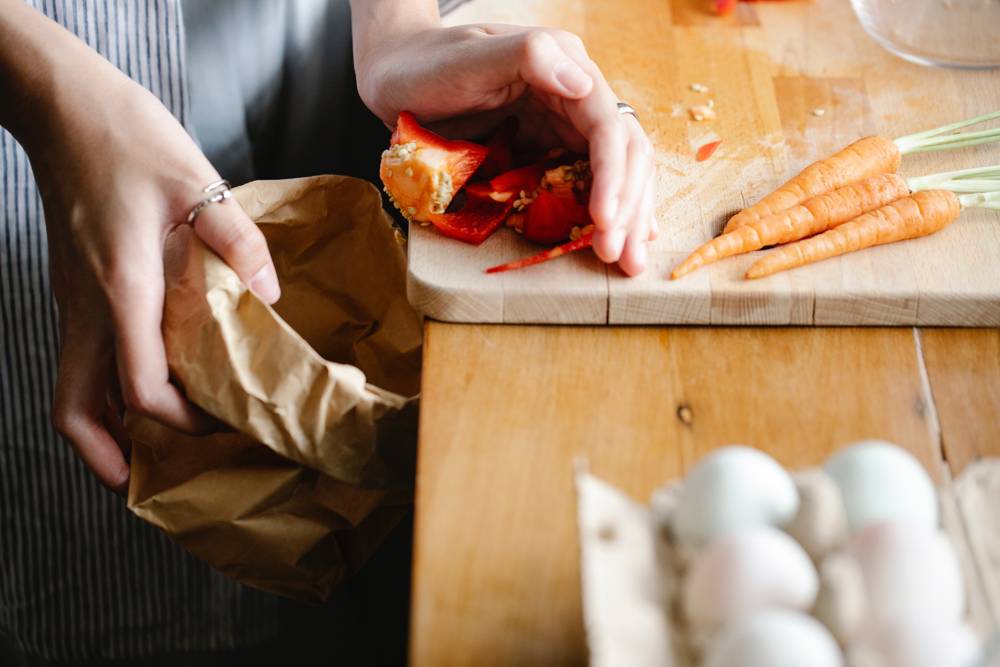About 9.5 million tonnes of food and drink is wasted by UK homes each year, yet most of us are unaware of where the food we waste actually ends up, nor do we know about the direct consequences of this. Food waste harms the environment – it wastes the energy, fuel and water that went into producing it and, if not recycled or treated correctly, can produce methane, which is a damaging greenhouse gas. In the worst-case scenario, food waste is collected and then either disposed of in landfill or incinerated.
In the UK, household food waste collection is a public function and is carried out by local councils. Each household is entitled to waste collection and is automatically enrolled on the council’s collection routes.
However, businesses are not automatically provided a waste management service by the government. Businesses in the UK must secure their own waste collection contracts and may pick a waste management company like Recycle Zone, who can efficiently handle their food waste.
Difference between household and commercial waste
Household waste
Household waste is solid waste which includes bottles, cans, clothing, compost, disposables, food packaging, food scraps, newspapers, garden trimmings.
Dealing with your household waste is fairly simple. Local councils have a legal duty under the Environmental Protection Act 1990 to collect your household waste, – the cost is incorporated into your yearly council tax charges. The council will usually provide you with two bins, one for general waste and one for recycled waste. They are initially provided free of charge and are collected on a set schedule.
Business Waste
Commercial or business waste, on the other hand, is defined as any waste produced from a commercial operation including waste from food, packaging, documents, works or repairs, alterations, construction, improvements or demolition.
Unlike household waste, your local council will not automatically collect your business waste for you. In fact, dealing with commercial waste is a lot more complicated to manage. It is law in the UK for businesses to take responsibility and manage their waste effectively. Businesses are also required by law to enter into a contract with a licenced waste carrier to collect and dispose of their wasted food.
There are multiple ways food from households and businesses are disposed of, not just landfill. Food can be composted to produce fertile soil, it can be fed to animals, or used to produce energy.
Landfill
Depositing food waste in landfill sites causes many problems. One of the core issues is that food rots and creates horrendous odours which attract vermin. But it can also directly cause greenhouse gas emissions like methane.
Animal Feed
A lot of food including meats, fish and crops are thrown into landfill when they can actually be used for animal consumption. For example, grains, bread and cereals can be used to feed chickens on farms.
Composting
Biological waste can be biodegraded by composting and reused to fertilise the soil. Composting is an aerobic process completed by microorganisms where bacteria breaks down food waste into simple organic materials which can then be used in soil. Plus it does not produce methane gas.
In-vessel composting involves combining food and garden waste and using a tunnel or vessel to compost it in around six to eight weeks. Temperatures in these composting vessels reach up to 70 degrees Celsius to kill any harmful microbes. Typically, after one to three months of maturing, it can be used as compost, a soil conditioner.
Energy
Anaerobic digestion is an advanced and environmentally friendly way to treat food waste. During this process, microorganisms are used to break down food waste inside an enclosed tank in the absence of oxygen. As this happens, it releases biogas, which can be used to go into the gas grid or generate electricity, heat and transport fuel. It also creates fertiliser which can be used in farming.
Commercial Liquid Food Waste
Businesses such as restaurants produce masses of conventional food waste. But they also produce food waste in the form of wastewater coming from sinks, dishwashers and floor drains. This wastewater is collected in holding tanks (grease interceptions) to minimise the amount of grease which makes it to the sewers.
This wastewater contains both organic and inorganic matter such as cleaning chemicals as well as fats, oils, and grease, it is referred to as ‘brown grease’ whereas ‘yellow grease’ is fryer oil that is easily collected and processed into biodiesel. This ‘brown grease’ is a significant problem for our sewer systems. The grease causes severe blockages and overflowing.
Our waste removal service in 3 easy steps:
1. Order your waste clearance service via our online booking portal.
2. We will come to your property and collect your waste.
3. We will dispose of your waste at the appropriate locations – ensuring everything is recycled where possible.
Get in touch if you require more information, or would like a free no-obligation quote.
Feature image photo by Sarah Chai / Pexels.
